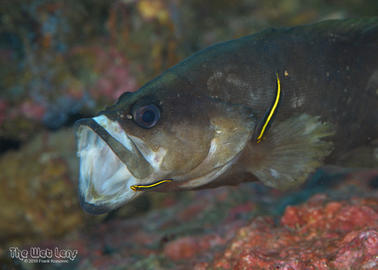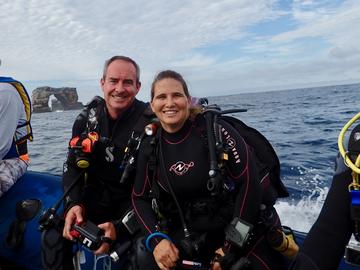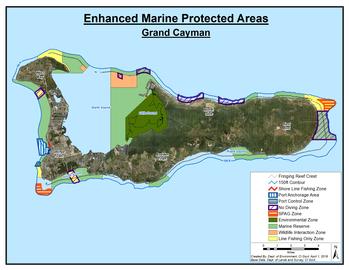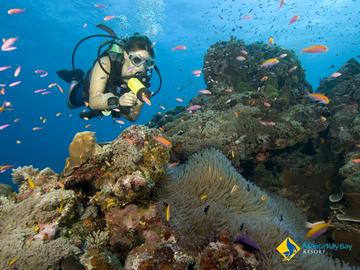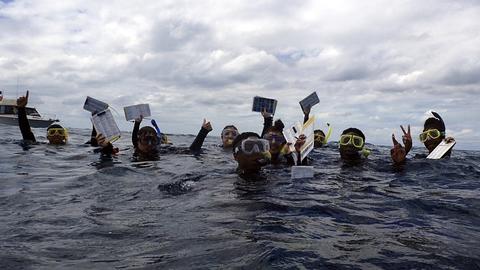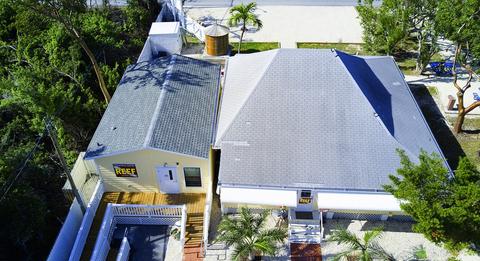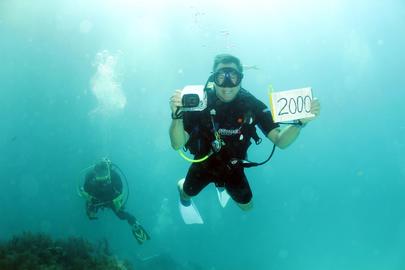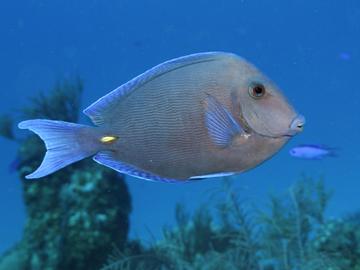A recent paper in Journal of the Ocean Science Foundation describes cleaning behavior that had previously not been documented in a particular species. The findings are the result of the keen eyes of two active REEF surveyors – Carol Cox and Frank Krasovec. Carol frequently surveys in the northern Gulf of Mexico and Frank surveys in his home state of North Carolina. Both photographed Yellowprow Goby, Elacatinus xanthiprora, cleaning other fishes, which is not typical for the species. Scientist and frequent REEF advisor, Dr.
We are very proud to share that Dr. Christy Pattengill-Semmens, REEF Director of Science, and Dr. Brice Semmens, Director of California Cooperative Oceanic Fisheries Investigations and associate professor at Scripps Institution of Oceanography, UC San Diego, have been named Scuba Diving magazine’s April 2019 Sea Heroes! Sponsored by the watch brand Seiko, this award honors the extraordinary work done by scuba divers making a difference for our world’s oceans, reefs and marine life.
We are very excited to share some great news from our Grouper Moon Project colleagues at Cayman Islands Department of Environment (DOE) – on April 1, 2019, the Cabinet of the Cayman Islands approved the most significant expansion and enhancement to Cayman’s existing marine parks system since the areas were established in 1986. The “no take” zones, including marine parks/reserves, environmental zones, and wildlife interaction zones, will increase from a national average of approximately 14% to 48%.
We are excited to announce that our 2020 REEF Field Survey Trips schedule is now available!
Students from two universities recently spent their spring breaks engaging with REEF's marine conservation and citizen science projects. Each group of students spent one fun-filled week working alongside REEF staff and interns to learn about Tropical Western Atlantic (TWA) fish identification and the REEF survey method. We were thrilled to welcome students from Georgia State University and their professor, Dr. Amy Reber, back to Key Largo for their annual field course. This weeklong education program has become a component of Georgia State's marine ecology course.
Earth Day is just a few days away. You can celebrate our environment by helping us reduce our carbon footprint at REEF Headquarters through a one-time, tax-deductible donation to support renewable energy.
Your generous contribution of $500 or $1,000 will go directly toward the installation of solar panels on the roof of REEF's Interpretive Center, reducing our monthly energy costs by an average of 55%!* Donors will be honored on a commemorative plaque at REEF Headquarters.
On Saturday, March 30, ten teams of 34 divers removed 620 invasive lionfish during REEF’s 7th Annual Winter Lionfish Derby, held at Sharkey’s Pub and Galley Restaurant in Key Largo. Between sunrise and 6 p.m., competitors scoured Florida Keys reefs in an attempt to to bring in the smallest lionfish, largest lionfish, and most number of individual lionfish. Team Forever Young caught the most fish at 149 individual lionfish.
REEF members are the heart of our grassroots marine conservation programs. A diverse community of divers, snorkelers, and ocean enthusiasts support our mission to conserve marine environments worldwide.
REEF Fishinars are fun, live, interactive webinars, open to anyone who wants to learn about ocean life. Our upcoming schedule includes a four-part beginner's course for the Tropical Western Atlantic (TWA) survey region, which includes Florida, the Caribbean, and The Bahamas. This series will cover the 60 most common fish species in this region and feature plenty of reviews and quizzes. This series will be an excellent resource for anyone who is interested in getting started as a surveyor, as well as provide a great review for advanced TWA surveyors.

